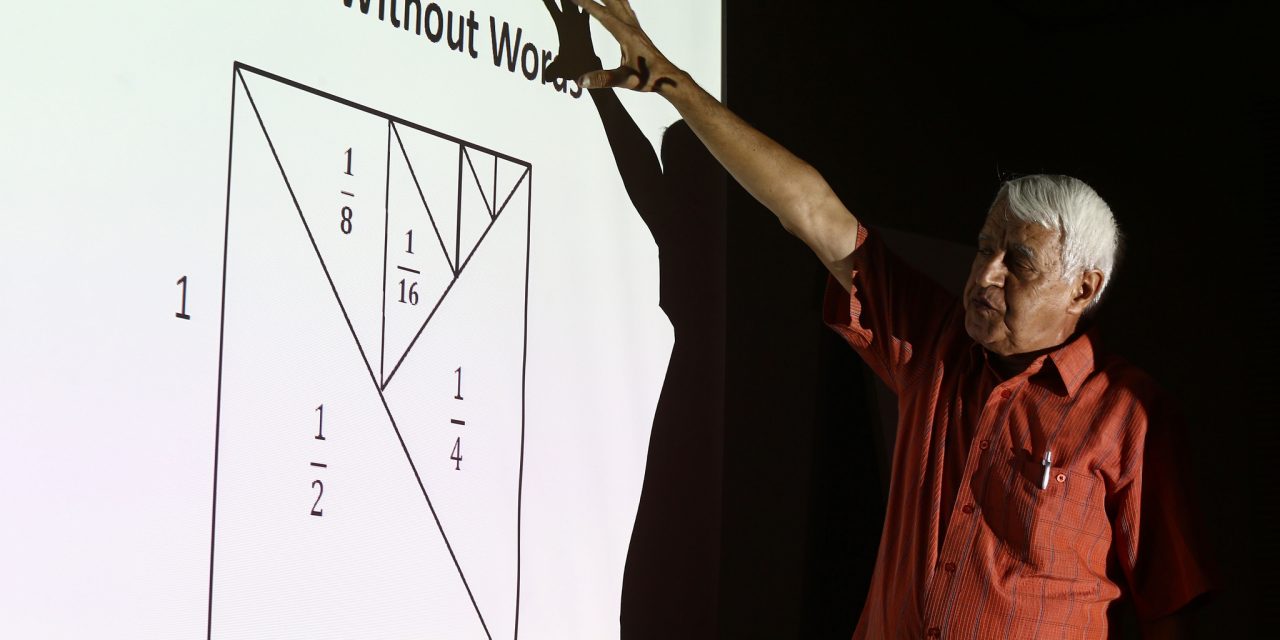August 8, 2018, 5:46 pm

Mathematics should be fun, according to Hossein Behforooz. Students shouldn’t be scared. If it’s not fun, what’s the point? “In more than half of every class we have, there is this kind of phobia. People think that math is difficult, that math is hard,” explained the mathematics professor at Utica College in New York. “Math is a way to prove something and to make it fun, not to scare students.”
Unlike some ICM colleagues, the Iranian doesn’t agree that it’s the teacher’s role to inspire or motivate students with their personal passion. The 77 year-old professor who has been at Utica for nearly four decades said there’s no way to make a student like mathematics. Put simply, those that love the discipline will do best. He used crochet as an example. “If you do not like it, you cannot make it. But when you like it, every knot is beautiful,” he said. “It’s art, not science.”
Read more:
But, Behforooz’s chosen subject area fascinates both mathematicians and non-mathematicians. A large part of the scholarship he produced is in an area called magic squares, containing grids with special arrangements of numbers in them. Magic squares earned their name in ancient times, due to associations with magic and the supernatural. The earliest record of a magic square is from China (circa 2200 BC), when Emperor Yu saw a magic square in the shell of a divine tortoise. In the West, magic squares were first used in the work of Theon of Smyrna, and by Arab astrologers in 8 AD. They were later seen in the writings of Greek mathematician Moschopoulos in the 14th century.
Magic squares retain their popularality as tools to help students solve and practice addition problems. Their arrangements are special because every diagonal, row and column add up to the same number. Behforooz said Brazil is clearly on the right path. “I heard that there are more than 500 Math Olympiad medallists here,” he said. “That is great, that is fantastic.”
Hosting the International Congress of Mathematicians in the southern hemisphere will reinforce positive ideas around math. It gives the message that mathematics is both accessible and fun for any student, anywhere in the world, Behforooz said. He hopes to meet an younger cohort of mathematicians at the next ICM in Russia.
“This is my ninth time to ICM. I hope I will be alive to go to the tenth one in Russia!” he laughed. “It’s very prestigious here [in Rio]. You had the Olympics, and you had the World Cup. The IMC was another chance to show that high achievement isn’t not just for the upper hemisphere.”